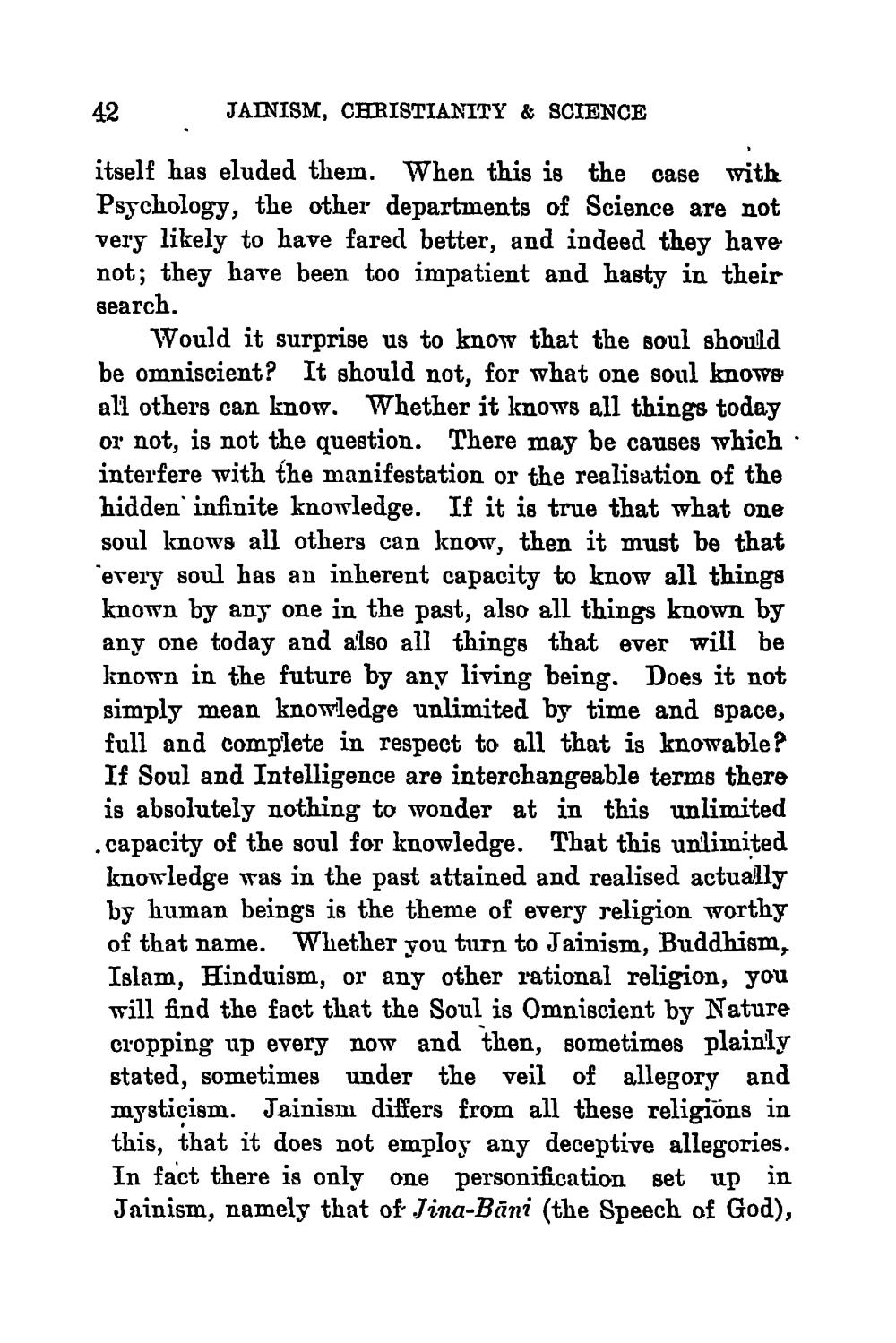________________
42
JAINISM, CHRISTIANITY & SCIENCE
itself has eluded them. When this is the case with Psychology, the other departments of Science are not very likely to have fared better, and indeed they have not; they have been too impatient and hasty in their search.
Would it surprise us to know that the soul should be omniscient? It should not, for what one soul knows all others can know. Whether it knows all things today or not, is not the question. There may be causes which interfere with the manifestation or the realisation of the hidden' infinite knowledge. If it is true that what one soul knows all others can know, then it must be that erery soul has an inherent capacity to know all things known by any one in the past, also all things known by any one today and also all things that ever will be known in the future by any living being. Does it not simply mean knowledge unlimited by time and space, full and complete in respect to all that is knowable? If Soul and Intelligence are interchangeable terms there is absolutely nothing to wonder at in this unlimited .capacity of the soul for knowledge. That this unlimited knorrledge was in the past attained and realised actually by human beings is the theme of every religion worthy of that name. Whether you turn to Jainism, Buddhism, Islam, Hinduism, or any other rational religion, you will find the fact that the Soul is Omniscient by Nature cropping up every now and then, sometimes plainly stated, sometimes under the veil of allegory and mysticism. Jainism differs from all these religions in this, that it does not employ any deceptive allegories. In fact there is only one personification set up in Jainism, namely that of Jina-Bāni (the Speech of God),




